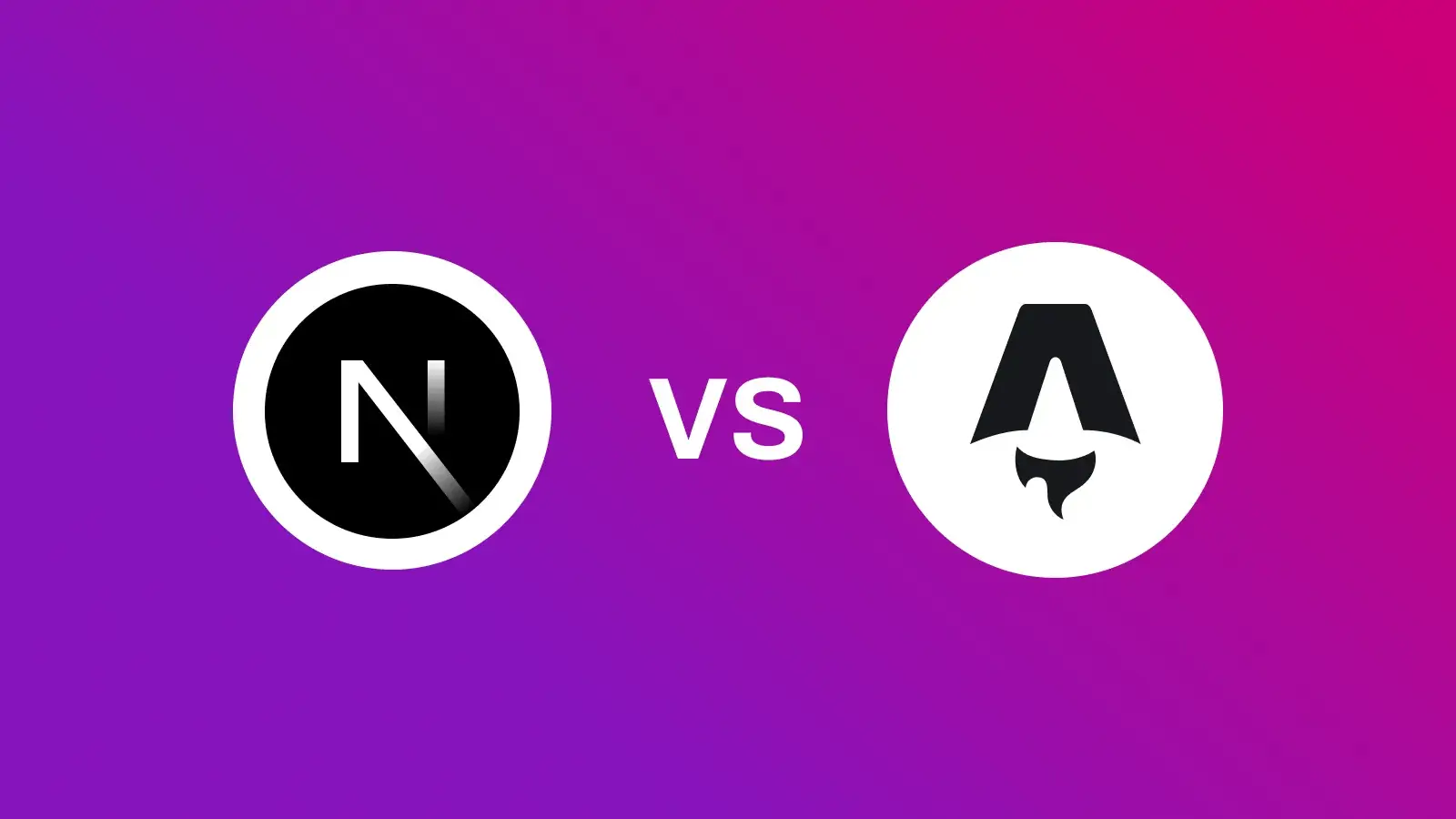Astro.js vs Next.js: Which One Should You Choose for Your 2024 Web Development Projects?
Compare Astro.js and Next.js to determine the best framework for your 2024 web development needs. Discover key features, differences, and use cases to make an informed decision.
- Web Development
- Astro.js
- Next.js
- Technology

Introduction
In the fast-evolving world of web development, choosing the right framework can make or break a project. With frameworks like Astro.js and Next.js gaining popularity, many developers are left wondering, “Which one should I choose for my 2024 projects?” This guide dives into the core features, differences, and best use cases of both frameworks to help you make an informed decision.
What is Astro.js?
Astro.js is a modern static site generator (SSG) designed for speed, simplicity, and low resource consumption. It allows developers to build fast, lightweight websites with minimal JavaScript. Unlike traditional frameworks, Astro only sends the HTML, keeping the site lightning-fast and SEO-friendly.
Key Features of Astro.js:
- Partial Hydration: Send only essential JavaScript to the client, improving load speed.
- Multi-Framework Support: Use components from React, Vue, Svelte, and more within one Astro project.
- File-Based Routing: Simple, file-based routing system for faster development.
- Optimized for SEO: Since only essential HTML is sent to the client, pages load faster, benefiting SEO.
- Static Site Generation (SSG): Generates static files, ensuring blazing-fast site load times.
What is Next.js?
Next.js is a powerful React-based framework that enables developers to build server-rendered, static, and dynamic websites. It has been a developer favorite due to its flexibility, extensive community, and seamless integration with React.
Key Features of Next.js:
- Server-Side Rendering (SSR): Pages are rendered on the server and sent as fully built HTML.
- Static Site Generation (SSG): Like Astro, Next.js can pre-render static pages.
- API Routes: Build API endpoints directly in the Next.js project.
- Dynamic Routing: Create dynamic pages with URL parameters (e.g.,
/product/[id]). - SEO-Friendly: SSR and SSG make Next.js pages crawlable and SEO-friendly.
- Fullstack Capabilities: Unlike Astro, you can build APIs directly in a Next.js app.
When Should You Use Astro.js?
Astro.js is a fantastic choice if you are building:
- Content-Driven Websites: Blogs, portfolios, and documentation sites with minimal interactivity.
- Marketing Pages: Landing pages and other SEO-driven pages where speed is crucial.
- Performance-Focused Sites: Websites that prioritize fast load times and minimal JavaScript.
Examples of Sites That Should Use Astro.js
- Personal blogs
- Documentation sites (like developer guides)
- Portfolio websites
- Content-heavy websites with minimal interactivity
When Should You Use Next.js?
Next.js is more versatile and is best suited for:
- Web Applications: Projects that require dynamic user interactions and real-time updates.
- eCommerce Sites: Sites with user accounts, shopping carts, and payment integrations.
- Content Management Systems (CMS): Websites that pull data dynamically from CMSs.
- Custom Fullstack Apps: Apps with both frontend (React) and backend (API) logic.
Examples of Sites That Should Use Next.js
- SaaS applications
- eCommerce websites
- Social media platforms
- Real-time dashboards
- Internal business tools
Which One Should You Choose in 2024?
The answer depends on your project’s needs. Here’s a quick recommendation:
-
Choose Astro.js if:
- You want a fast, static website (like a blog, portfolio, or docs site).
- Your primary goal is SEO and site speed.
- You want to use multiple frameworks (like React, Vue, or Svelte) in one project.
-
Choose Next.js if:
- You need to build dynamic, interactive web applications.
- Your site requires server-side rendering (SSR) or API routes.
- You want a fullstack approach (frontend + backend in one project).
Conclusion
Both Astro.js and Next.js have their strengths. Astro excels at speed, SEO, and static sites, while Next.js is a fullstack powerhouse for interactive web applications. When choosing, ask yourself: Do I need a content-driven site or a fullstack app? Your answer will guide you to the right tool.
If you want to prioritize speed, SEO, and simplicity, go with Astro.js. If you need interactivity, APIs, and advanced routing, choose Next.js. Either way, you’ll be well-equipped to handle the demands of web development in 2024.
If you found this comparison helpful, stay tuned for more deep dives into the latest frameworks and web development trends for 2024 and beyond.
Related Blogs

How AI is Shaping the Future of Content Creation in 2024
Discover how AI is transforming content creation with innovative tools, smarter algorithms, and enhanced creativity in 2024.

How AI is Revolutionizing eSports: A Deep Dive
Discover how artificial intelligence is reshaping the eSports industry, from game strategy analysis to player performance optimization.

From Zero to Hero: Beginner’s Guide to Building Progressive Web Apps in 2025
Learn how to build Progressive Web Apps (PWAs) from scratch in 2025 with this beginner-friendly guide. Discover essential tools, best practices, and step-by-step instructions to create fast, reliable, and engaging PWAs.

Behind the Scenes of Apple's Product Launch: What You Didn't Know!
Explore the hidden processes, untold stories, and meticulous planning that make Apple's product launches legendary.

5 Must-Have Browser Extensions for Developers in 2024
Discover the essential browser extensions every developer needs in 2024 to boost productivity, enhance debugging, and streamline web development.
